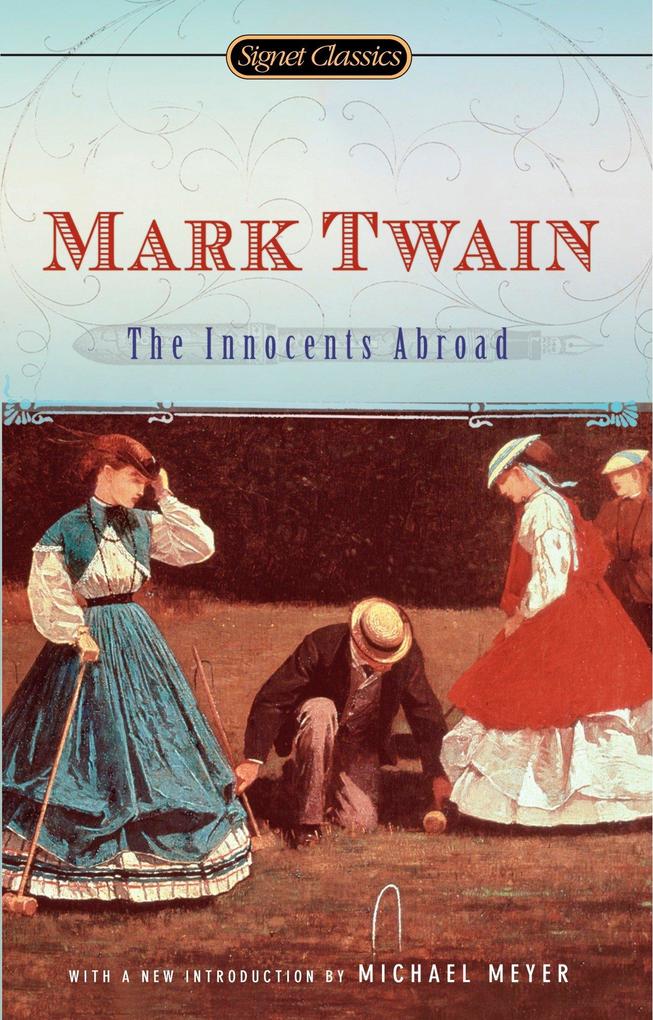
Zustellung: Sa, 15.03. - Sa, 22.03.
Versand in 2 Monaten
VersandkostenfreiBestellen & in Filiale abholen:
One of the most famous travel books ever written by an American, The Innocents Abroad is Mark Twain's irreverent and incisive commentary on nineteenth century Americans encountering the Old World.
Come along for the ride as Twain and his unsuspecting travel companions visit the Azores, Tangiers, Paris, Rome, the Vatican, Genoa, Gibraltar, Odessa, Constantinople, Cairo, the Holy Land and other locales renowned in history. No person or place is safe from Twain's sharp wit as it impales both the conservative and the liberal, the Old World and the New. He uses these contrasts to "find out who we as Americans are," notes Leslie A. Fiedler. But his travelogue demonstrates that, in our attempt to understand ourselves, we must first find out what we are not.
With an Introduction Michael Meyer and an Afterword by Leslie A. Fiedler
Come along for the ride as Twain and his unsuspecting travel companions visit the Azores, Tangiers, Paris, Rome, the Vatican, Genoa, Gibraltar, Odessa, Constantinople, Cairo, the Holy Land and other locales renowned in history. No person or place is safe from Twain's sharp wit as it impales both the conservative and the liberal, the Old World and the New. He uses these contrasts to "find out who we as Americans are," notes Leslie A. Fiedler. But his travelogue demonstrates that, in our attempt to understand ourselves, we must first find out what we are not.
With an Introduction Michael Meyer and an Afterword by Leslie A. Fiedler
Produktdetails
Erscheinungsdatum
03. April 2007
Sprache
englisch
Seitenanzahl
560
Autor/Autorin
Mark Twain
Verlag/Hersteller
Produktart
kartoniert
Gewicht
272 g
Größe (L/B/H)
173/106/39 mm
ISBN
9780451530493
Entdecken Sie mehr
Pressestimmen
"There was never anybody like him; there never will be."-William Dean Howells










